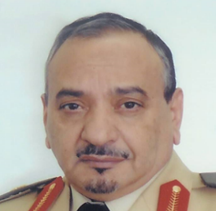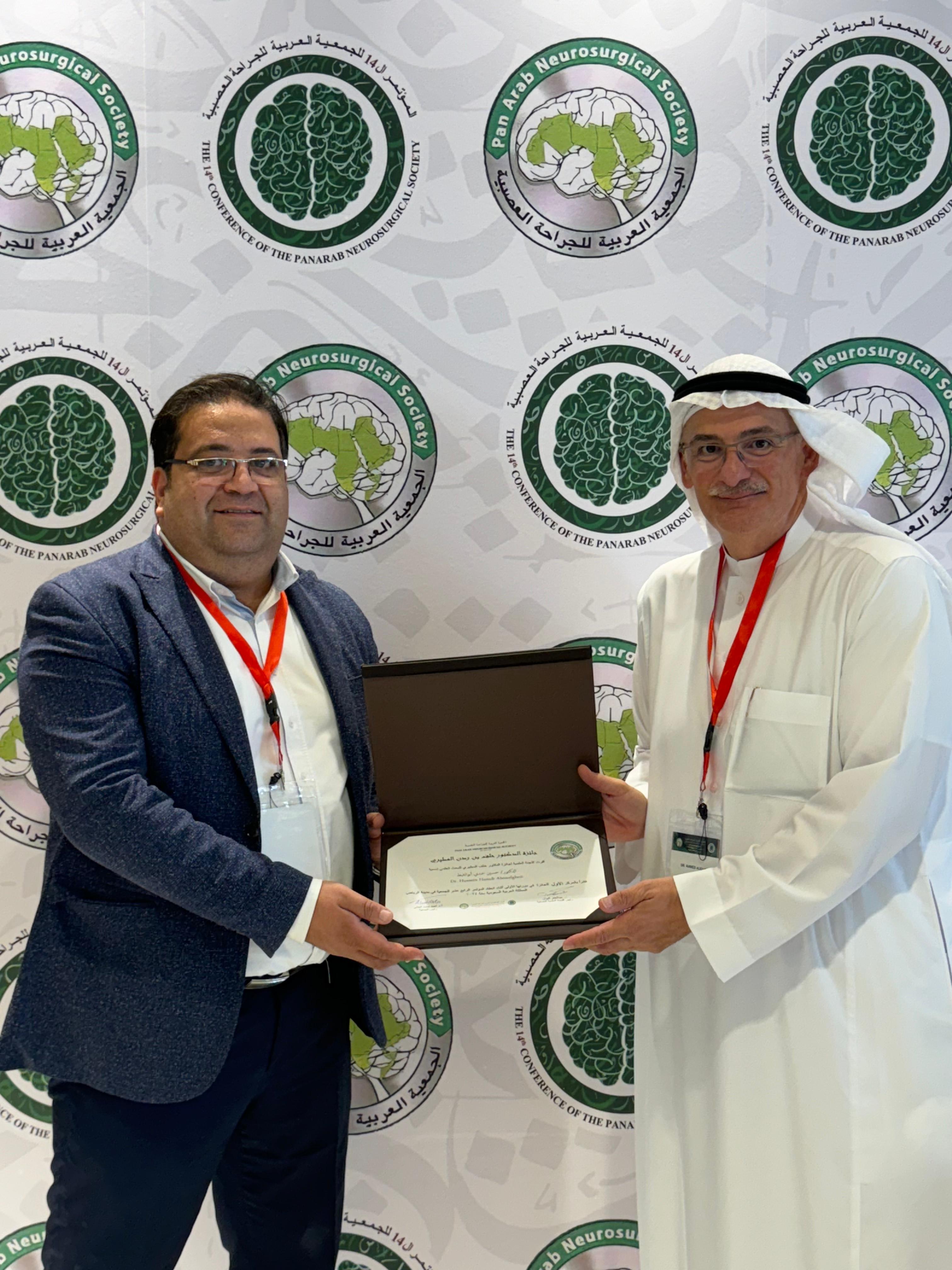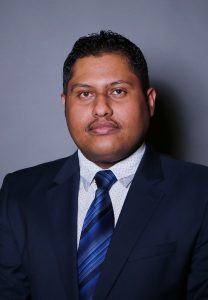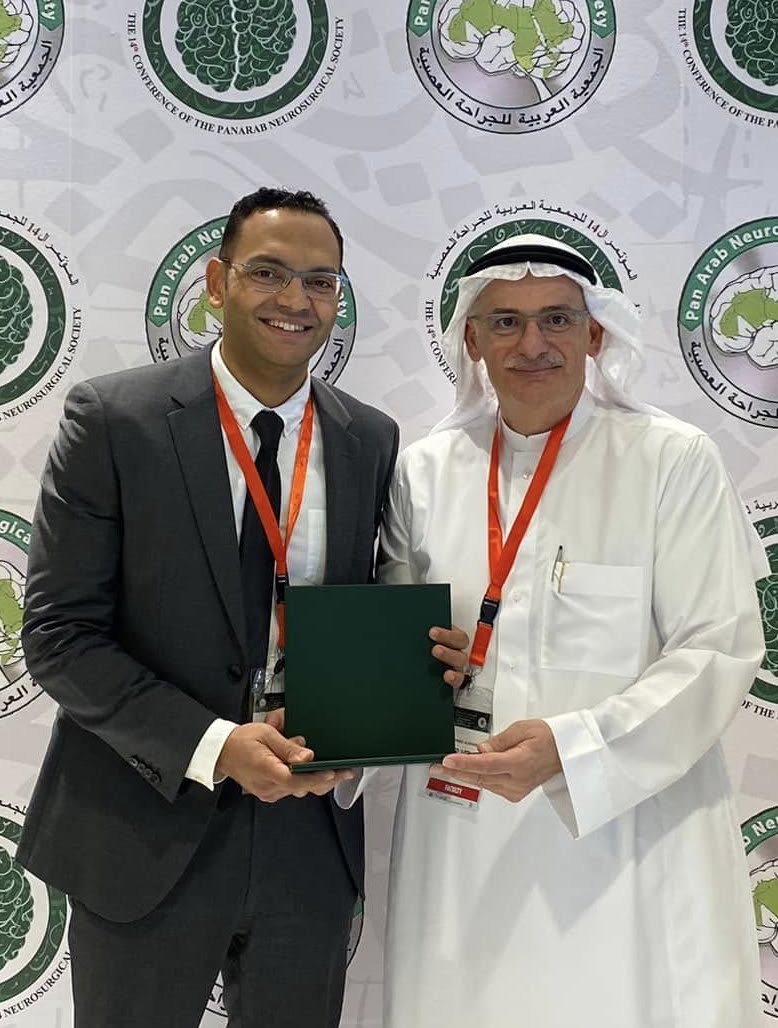Introduction
Welcome to the Pan Arab Neurosurgical Society. We are committed to advancing the field of neurosurgery through education, research, and professional development. Our society brings together neurosurgeons from across the Arab World to share knowledge, collaborate on research, and promote the highest standards of clinical practice. We invite you to explore our website to learn more about our activities, events, and membership opportunities.
The award in memory of Dr. Khalaf Al-Mutairi expresses gratitude and appreciation for the doctor, who played a significant role in founding and supporting the Arab Society since its inception until his death. We also remember his role in publishing the Pan Arab Journal of Neurosurgery. Therefore, the Arab Society of Neurosurgery Council decided to establish this scientific activity in his memory, which will continue with each conference of the Pan Arab Society.
Competition Conditions
1) The research must be new, not older than three years from the date of preparation, and its content should not have been published before.
2) The researcher’s name, title, and address should be placed directly under the research title in both Arabic and English.
3) On a separate sheet, the title of the research, the author’s name, and their scientific title should be written along with abstracts of the research in both Arabic and English, each not exceeding 50 words. The researcher should be no older than 35 years.
4) Four copies of the research must be sent, typed on a computer using Word, double-spaced on 20x30 cm paper with a normal margin and on one side of the paper. The copies should be accompanied by a PDF file.
5) The research paper should not exceed 30 pages, including diagrams, footnotes, and references.
6) A list of references should be placed at the end of the research on a separate sheet or sheets, arranged alphabetically.
7) Submitted research papers will be evaluated within a month to determine their suitability for publication and for entering the competition.
8) Research papers will not be returned to their authors.
9) The Training Committee of the Arab Society will, with the help of experts in scientific research, select the best three research papers.
10) Research papers should be sent before the date of the Arab Society of Neurosurgery Conference.
11) Research papers should be sent to the Chairman of the Training Committee of the Arab Society of Neurosurgery at the following email: agkiwan@yahoo.com.
12) The results of the best three research papers will be announced one month before the conference.
13) The three winners will be invited to the conference to present a lecture on their research.
14) Scientific Research Award: accommodation, registration, and $1000 for the first prize, $500 for the second prize, and $400 for the third prize.
Prof. Khalaf Al-Mouteary History
Professor Major General Dr. Khalaf bin Radin Al-Mutairi was among the most skilled neurosurgeons.
Al-Mutairi graduated from the College of Medicine in 1975 from the University of Bonn in Germany. After that, he returned to Saudi Arabia, working at the military hospital as a resident general practitioner. He then went to Lebanon for eight months as part of a medical team accompanying the "Deterrent Forces" during the civil war. He then traveled back to Germany to specialize in neurosurgery, where he obtained his fellowship and doctorate. After he returned to the Kingdom, he was the first and only Saudi neurosurgeon. He worked at the military hospital in Riyadh and then became the director of the Riyadh and Kharj Hospitals Program.
Dr. Al-Mutairi's influence in the field of neurosurgery extended beyond his surgical skills. He founded the Pan Arab Neurosurgical Society and Pan Arab Journal of Neurosurgery, serving as its first president in 1996. His leadership was further recognized when he was appointed as the second deputy president of the World Federation of Neurosurgical Societies (WFNS) in 2001, a position he held until he became the first deputy president in 2005. He also chaired the Military Neurosurgeons Committee of the same federation in 2009, showcasing his leadership and influence in the global neurosurgical community.
Dr. Al-Mutairi's contributions to the field of neurosurgery are not only numerous but also significant. He presented over 140 research studies, each contributing to the advancement of neurosurgery. His dedication and hard work were recognized with numerous awards, each a testament to his commitment to the field. Among these, the ones dearest to his heart were the King Abdulaziz First Class Medal, an academic award, the Medal of Honor from the International Society, and his position as the first deputy president of the International Society of Neurosurgery. These achievements not only reflect his personal success but also bring pride to the entire neurosurgical community.







